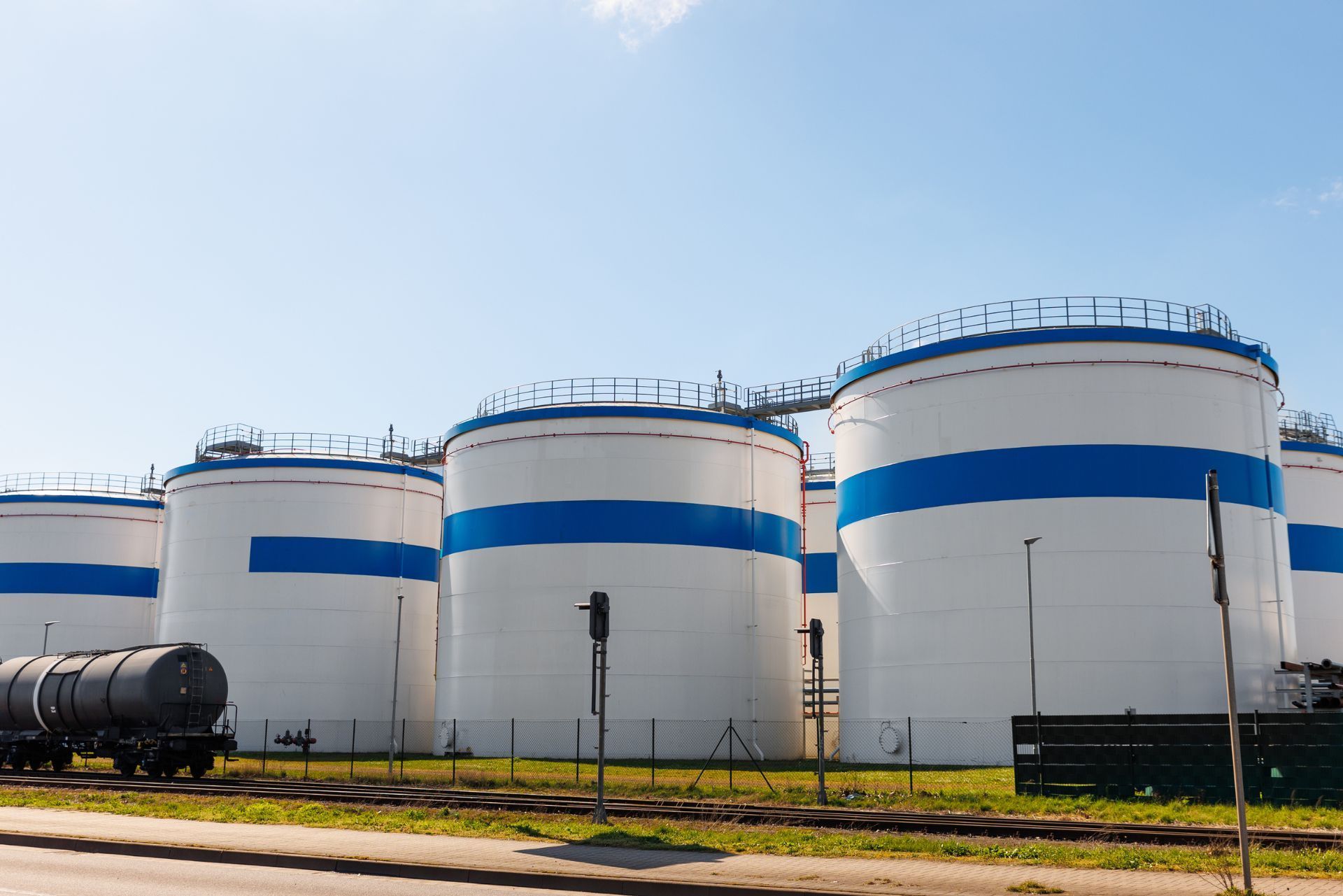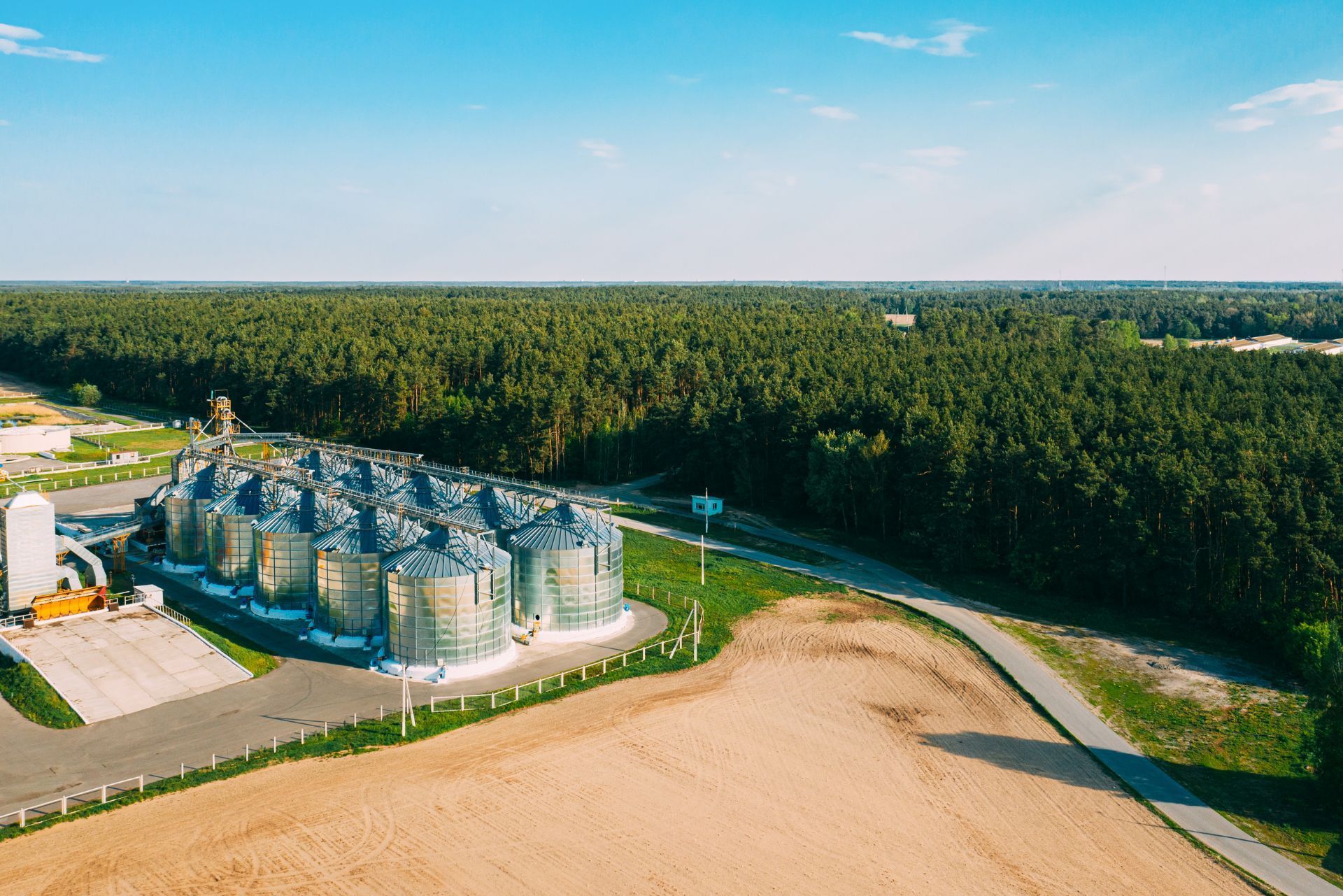Top 3 Recommended Policies

Operating a tank farm involves managing significant risks, from environmental hazards to costly regulatory compliance. For businesses in this sector, securing the right insurance coverage is not just a formality—it’s a vital safeguard against financial loss and operational disruption. With the global commercial insurance market valued at approximately $330 billion in 2022, and North America accounting for nearly 45% of that market, understanding how tank farm insurance fits into this landscape is essential for business owners and risk managers alike. WIFI Talents provides a comprehensive overview of these market dynamics, highlighting the growing importance of specialized insurance products tailored to complex industrial operations.
Understanding the Unique Risks of Tank Farm Operations
Tank farms, which store large quantities of liquids such as petroleum, chemicals, or water, face a variety of risks that can have severe financial and environmental consequences. One of the most significant hazards is the potential for leaks or spills, which can lead to costly cleanups and regulatory penalties. Studies indicate that the average cleanup cost for storage tank leaks in North America exceeds $140,000 per incident, underscoring the financial exposure tank farm operators face without adequate coverage.
Beyond environmental risks, tank farms must also contend with fire hazards, equipment failure, and operational disruptions. The launch of advanced fire protection systems, such as Tyco’s intelligent fire protection panels introduced in 2023, reflects industry efforts to mitigate these risks through technology. These panels offer enhanced monitoring and control capabilities, helping to prevent incidents before they escalate into costly claims. Furthermore, regular maintenance and employee training programs are essential components of a comprehensive risk management strategy, ensuring that staff are well-prepared to respond to emergencies effectively.
Given these complexities, commercial carriers are increasingly challenged to keep pace with the rapid evolution of risk profiles in industries like tank farming. As McKinsey & Company notes, “Commercial carriers have not always kept pace with structural changes in the nature of risk, which are accelerating more rapidly than ever.” This makes choosing the right insurance partner and policy even more critical for tank farm businesses. In addition to traditional coverage, operators are now looking into specialized insurance products that address the unique risks associated with their operations, such as pollution liability insurance and business interruption coverage, which can provide vital financial support in the event of an incident.
Moreover, the regulatory landscape surrounding tank farms is becoming increasingly stringent, with agencies like the Environmental Protection Agency (EPA) enforcing stricter compliance measures. This shift not only heightens the importance of adhering to safety protocols but also necessitates that operators stay informed about evolving regulations. Engaging with industry associations and participating in training workshops can help tank farm operators navigate these complexities, ensuring they maintain compliance while also fostering a culture of safety within their organizations. As the industry continues to evolve, proactive risk management will be key to safeguarding both assets and the environment.

Key Components of Tank Farm Business Insurance
Insurance policies for tank farms typically encompass several essential coverages designed to address the specific risks of storage and handling operations. These include:
- Property Insurance: Covers physical assets such as tanks, piping, and buildings against damage caused by fire, storms, or vandalism.
- Environmental Liability Insurance: Protects against claims arising from pollution incidents, including leaks and spills that contaminate soil or water.
- Business Interruption Insurance: Provides financial support if operations are halted due to an insured event, helping to cover lost income and ongoing expenses.
- General Liability Insurance: Covers third-party bodily injury or property damage claims resulting from tank farm operations.
Given the high stakes involved, many tank farm operators also invest in specialized endorsements or riders that address overfill incidents and regulatory compliance issues. Overfills, while preventable, remain a common cause of spills and damage. As highlighted by the J. J. Keller® Compliance Network, “Overfills can happen, but they are preventable!” Incorporating technology and compliance measures into insurance policies can help reduce premiums and improve overall risk management.
In addition to the standard coverages, tank farm insurance can also include coverage for equipment breakdown, which is crucial given the reliance on various mechanical systems for safe operations. This coverage can mitigate the financial impact of unexpected equipment failures, ensuring that operations can resume quickly and minimizing downtime. Moreover, tank farms may also face unique challenges related to cyber threats, particularly as more facilities adopt automated systems and IoT technologies. Cyber liability insurance can provide essential protection against data breaches and cyber-attacks that could disrupt operations or compromise sensitive information.
Furthermore, tank farm operators are often subject to stringent regulatory requirements, necessitating the inclusion of compliance coverage in their insurance policies. This aspect not only helps in managing the costs associated with regulatory fines but also supports the implementation of best practices in safety and environmental stewardship. By aligning insurance coverage with regulatory expectations, operators can foster a culture of compliance that not only protects their assets but also enhances their reputation in the industry. This proactive approach to risk management can ultimately lead to more favorable insurance terms and conditions, reflecting the operator's commitment to safety and environmental responsibility.
Regulatory Compliance and Its Impact on Insurance
Compliance with environmental and safety regulations is a critical factor influencing tank farm insurance. Regulatory bodies impose strict standards on storage tank operations to prevent pollution and protect public health. Noncompliance can result in hefty fines, with the average penalty projected to reach up to $50,000 per incident in 2024, according to Market Research Future.
Insurance companies often require proof of compliance as a condition for coverage, and failure to adhere to regulations can lead to denied claims or increased premiums. This dynamic encourages tank farm operators to invest in robust monitoring systems, employee training, and maintenance programs. The integration of intelligent fire protection panels and automated leak detection systems exemplifies how technology is being leveraged to meet regulatory demands and reduce insurance risks simultaneously.
Moreover, the financial burden of cleanup and remediation following a regulatory violation can be substantial. With cleanup costs averaging over $140,000 per leak incident, insurance coverage that includes environmental liability is indispensable for mitigating these expenses.
In addition to the direct financial implications, regulatory compliance also plays a significant role in shaping the reputation of tank farm operators. Companies that demonstrate a commitment to adhering to environmental standards are more likely to gain the trust of stakeholders, including investors, customers, and the surrounding community. This trust can translate into a competitive advantage, as consumers increasingly prefer to engage with businesses that prioritize sustainability and ethical practices. Furthermore, a strong compliance record can enhance an operator's ability to secure financing, as lenders often assess the risk associated with regulatory violations when determining loan terms.
Furthermore, the evolving landscape of regulations means that tank farm operators must stay informed about changes in laws and standards. This requires ongoing education and adaptability, as new technologies and practices emerge to address environmental concerns. For instance, the adoption of green technologies, such as bioremediation and advanced filtration systems, not only aids in compliance but also positions companies as leaders in environmental stewardship. By proactively embracing these innovations, operators can reduce their insurance liabilities while contributing positively to their industry's sustainability goals.
Market Trends and Future Outlook for Tank Farm Insurance
The commercial insurance market is evolving, driven by technological advancements and shifting risk landscapes. The global commercial insurance market is expected to grow at a compound annual growth rate (CAGR) of 4.5% from 2023 to 2028, reflecting increased demand for specialized coverage in sectors like tank farming.
As insurers adapt to new risk profiles, tank farm businesses can anticipate more tailored insurance products that incorporate advanced risk mitigation technologies. For example, the adoption of intelligent monitoring systems not only improves safety but also influences insurance underwriting by providing real-time data and predictive analytics.
Despite these advancements, challenges remain. The rapid pace of change in risk factors means that commercial carriers must continuously update their models and offerings to stay relevant. Tank farm operators should stay informed about industry trends and work closely with insurance providers to ensure their coverage evolves alongside their operational risks.
Moreover, the increasing focus on environmental sustainability is reshaping the insurance landscape for tank farms. Insurers are now more likely to offer incentives for operators who implement eco-friendly practices, such as using renewable energy sources or adopting spill prevention technologies. This shift not only helps mitigate environmental risks but also aligns with global efforts to combat climate change, making it a win-win situation for both insurers and tank farm operators.
Furthermore, the integration of artificial intelligence (AI) and machine learning into the insurance underwriting process is paving the way for more accurate risk assessments. By analyzing vast amounts of data, these technologies can identify potential hazards and trends that may not be immediately apparent. As a result, tank farm operators can benefit from more precise pricing models and coverage options that reflect their unique operational environments, ultimately leading to a more resilient and adaptive insurance framework in the face of evolving challenges.

Choosing the Right Insurance Partner for Your Tank Farm
Selecting an insurance provider with expertise in tank farm operations is crucial. The complexity of risks and regulatory requirements demands a partner that understands the nuances of the industry and can offer customized solutions. Factors to consider include the insurer’s experience, claims handling reputation, and willingness to collaborate on risk management strategies.
Additionally, businesses should evaluate policy terms carefully to ensure comprehensive coverage without gaps. This includes verifying limits on environmental liability, exclusions related to overfills, and provisions for business interruption. Engaging with brokers or consultants who specialize in industrial insurance can provide valuable insights and help negotiate favorable terms.
Furthermore, it’s essential to assess the insurer's financial stability and ability to pay claims, especially in times of crisis. A strong financial rating can indicate that the insurer is well-equipped to handle large claims that may arise from catastrophic events, such as spills or equipment failures. It’s also beneficial to inquire about the insurer's claims process, including average response times and the level of support provided during a claim. A responsive and supportive claims team can greatly alleviate the stress associated with managing incidents and ensure that operations can resume as quickly as possible.
Ultimately, the goal is to secure insurance that not only protects assets and finances but also supports sustainable and compliant operations. As the tank farm sector continues to grow and evolve, proactive insurance management will remain a cornerstone of business resilience. Keeping abreast of changes in regulations and emerging risks, such as cyber threats to operational technology, can further enhance the effectiveness of your insurance strategy. Regularly reviewing and updating your insurance coverage in consultation with your chosen partner will help ensure that your tank farm remains protected against both current and future challenges.
Conclusion: Protecting Your Oil & Gas Trucking Business
Tank farm business insurance is a critical component of risk management in an industry marked by high stakes and complex challenges. With significant cleanup costs, stringent regulatory fines, and evolving risk profiles, securing comprehensive and adaptive insurance coverage is essential for protecting your investment and ensuring operational continuity.
By understanding the unique risks, embracing technological advancements, and partnering with knowledgeable insurers, tank farm operators can navigate the insurance landscape with confidence. Staying informed about market trends and regulatory developments further empowers businesses to optimize their coverage and safeguard their future in this dynamic sector.
For more insights into the commercial insurance market and its relevance to tank farm operations, explore resources like
McKinsey & Company’s global insurance report, which highlights the ongoing transformation in risk management and insurance solutions.
Contact Us
Phone
Location
9595 Six Pines Dr, Suite 8210, The Woodlands, TX 77380

